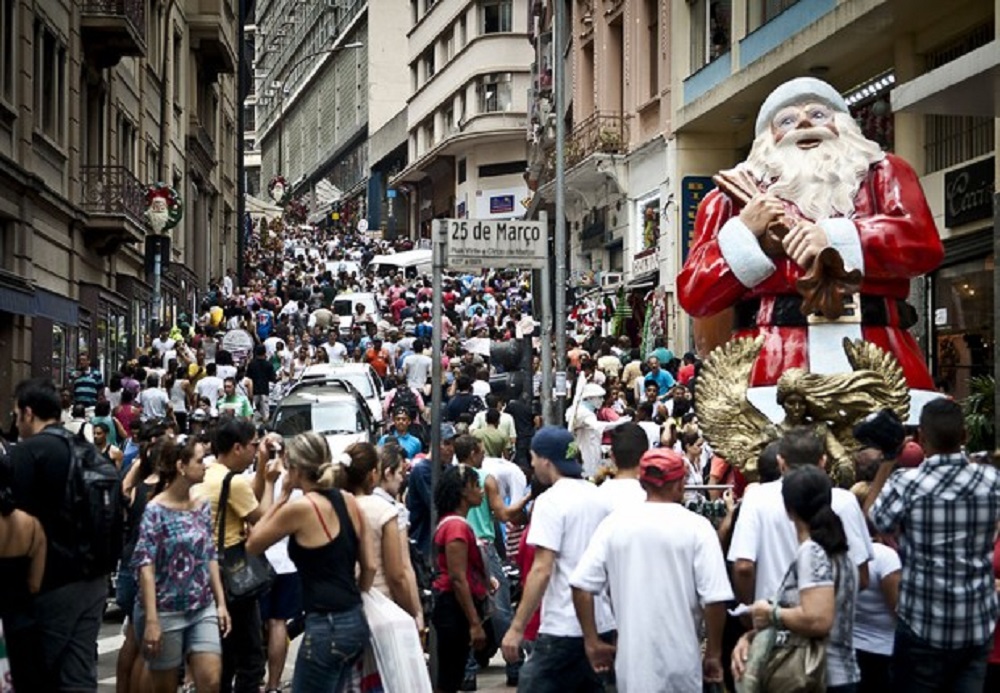RIO DE JANEIRO, BRAZIL – The hiring of temporary workers in the retail and service sectors should total 103,000 jobs at the end of the year.
If this forecast is confirmed, temporary employment – an indicator of trade expectations for the year’s most intense consumption period – will reach its highest mark in five years in 2019.

In 2014, when the country had not yet entered recession, the hiring of temporary workers for the period was 300,000. Although the projection is far from that level, this year there will be 43,800 more jobs than in 2018.
The numbers of the survey conducted by the National Confederation of Store Managers (CNDL) and the Credit Protection Service (SPC Brazil), with more than a thousand businessmen, show that the economic wheel has started to spin at greater speed in both retail and services.
Marcela Kawauti, the chief economist at SPC Brazil, recalls the positive results of the IBGE survey. In July, retail sales grew for the fourth consecutive month and accumulated a 0.8 percent increase for the year. In the service sector, the progress made since January was of 1.2 percent in sales.
After four months out of work, Romário de Jesus Souza, 27, got a temporary job as a merchandise stocker in a store in São Paulo. “This job is a real godsend. They said that as soon as there’s an opening available, I have a chance to fill it.”
According to the CNDL and SPC Brasil surveys, the average monthly salary for temporary workers this year is R$1,597, virtually the same figure as in 2018.
Expectation
Sales growth recorded to date may be modest, but entrepreneurs are more confident: six out of ten respondents expect sales at this year-end to be better than in 2018, the survey points out. In addition, 43 percent plan to increase their stock.
In the Armarinhos Fernando chain, which specializes in toys, stationery, and decoration items, there is no shortage of products. “The supply is well stocked,” says manager Ondamar Ferreira. So far, the store has hired more than twice as many temporary workers as last year.
“We haven’t even started October and we’ve already generated many jobs this year,” says Luiza Helena Trajano, president of Magazine Luiza’s board of directors. As a result of the chain’s expansion, with more than a thousand physical stores, the company has hired approximately 500 permanent workers per month. This year more than one hundred stores will be opened.
Of the R$30 billion (US$7.5 billion) injected into the economy through the withdrawals from the FGTS (Severance Premium Reserve Fund) and the PIS/PASEP (Social Integration Program/Civil Servants Asset Development Program), the National Confederation of Commerce (CNC) estimates that R$13.1 billion will be used for purchases.
In addition, R$12.2 billion will be used to pay off debts, which could bring more Brazilians back to consumption over time.

Fabio Bentes, CNC’s chief economist, says the extra money should have more impact on retail this year than the release of resources from the Guarantee Fund in 2017. The fact is that today, families’ indebtedness is lower.
In 2017, R$44 billion were released and R$11 billion were used for consumption. “What will make the difference this Christmas is this extra money.”
Source: Estadão Conteúdo

